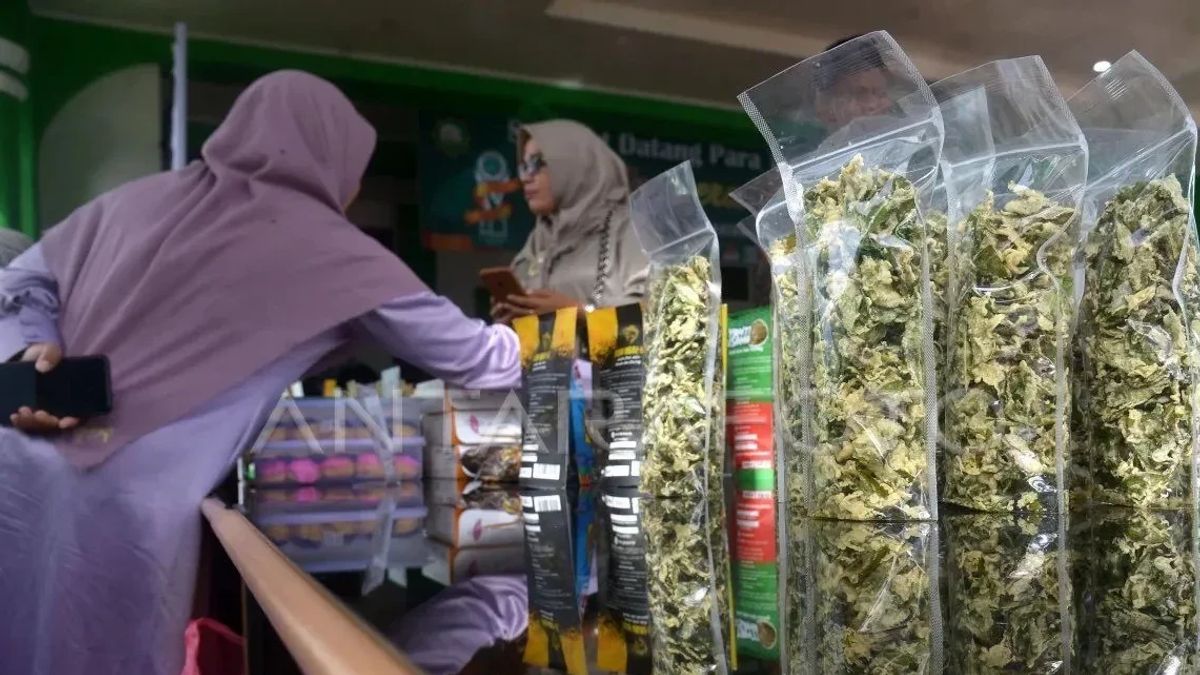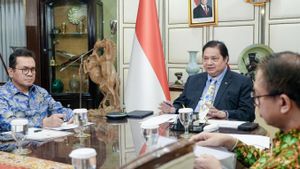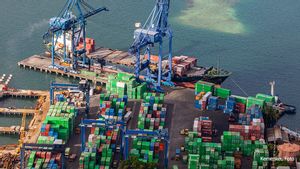JAKARTA - The Ministry of Cooperatives and SMEs (Kemenkop UKM) hopes that policies that require MSME actors in Indonesia to have halal certification starting October 18, 2024 can be postponed. Many parties are considered not ready.
Responding to this, the Executive Director of the Center of Reform on Economics (Core) Mohammad Faisal said that actually the policy did not need to be postponed.
"Actually, it can also not be postponed, but the government provides relief to MSMEs to get halal certification," Faisal told VOI, Saturday, February 24.
Faisal assessed that if the government did this, later MSME actors would not object to the implementation of existing policies.
"So, on the one hand, we can still implement halal labelization, but on the other hand it is not burdensome for MSMEs like that," he said.
According to him, when the government has started implementing the policy and will later burden MSME actors with halal certification fees, it is certain that they will feel A.
"It should be (giving certification fees) free (for MSME actors). If it is also charged (certification costs) to MSMEs, yes, it doesn't fit in my opinion," he added.
As previously reported, the Deputy for SMEs at the Coordinating Ministry for SMEs Hanung Harimba Rachman said that the halal certification policy would complicate MSMEs.
He reminded that there would be an impact on MSMEs if the policy was forced to be implemented.
"The Minister (Teten Masduki) yesterday said that we saw that some providers were not ready, I think. So, I hope that the implementation will be postponed or the approach will change. What is forbidden is to use certificates. So, don't complicate MSMEs," said Hanung to reporters at the Ministry of Cooperatives and SMEs office, Jakarta, Friday, February 23.
Hanung also does not believe that all MSMEs can have halal certificates until October 17, 2024.
Given, currently the average product certified is only 200 products per year, while one MSME can have 5 products.
"Even though our MSMEs are tens of millions. It won't be achieved that. It's better than the beginning if I, yes, postpone it or do need to change the approach," he said.
He also encouraged the obligation to start certification from the main points.
For example, if the food comes from meat, the first certified slaughterhouse or the products of the source of the raw materials that are required to be certified first. If it's halal, it will be confirmed that the product is finally halal.
"Our job is not only halal certification. Their feeding is more important. Don't let our MSMEs not be able to eat. This is more important," said Hanung.
The English, Chinese, Japanese, Arabic, and French versions are automatically generated by the AI. So there may still be inaccuracies in translating, please always see Indonesian as our main language. (system supported by DigitalSiber.id)













